On August 26, 2018, at the invitation of Prof. Zhao Xiangmo, the head of Chang'an University's “Car-Road Information Perception and Intelligent Transportation” 111, the director of the State Key Laboratory of Complex System Management and Control of the Chinese Academy of Sciences, and the Vice Chairman and Secretary of the China Automation Society. Professor Wang Feiyue and his team of 3 people came to our base for academic exchanges. Professor Zhao Xiangmo, the director of the base, met with Professor Wang Feiyue in the VIP room of the Academic Exchange Center.
Professor Zhao Xiangmo warmly welcomed Professor Wang Feiyue and his entourage to the base. He briefly introduced the basic situation of the development history, discipline characteristics, personnel training and scientific research of the base, and introduced the research team of the base in intelligent transportation and autopilot. Research results and future development plans in the areas of driving, car networking, intelligent networked vehicles and their testing technology. Professor Wang Feiyue expressed his gratitude to the warm reception of the base and fully affirmed the outstanding achievements of our base in the field of transportation. The research team of our base has been in the car networking, driverless, smart car testing technology and its testing ground in recent years. The achievements of the construction were highly praised. He hopes to take the road cooperation and intelligent transportation research as a breakthrough, relying on major scientific research projects and high-level scientific research platforms, and carry out comprehensive and in-depth cooperation with relevant research teams of our base.
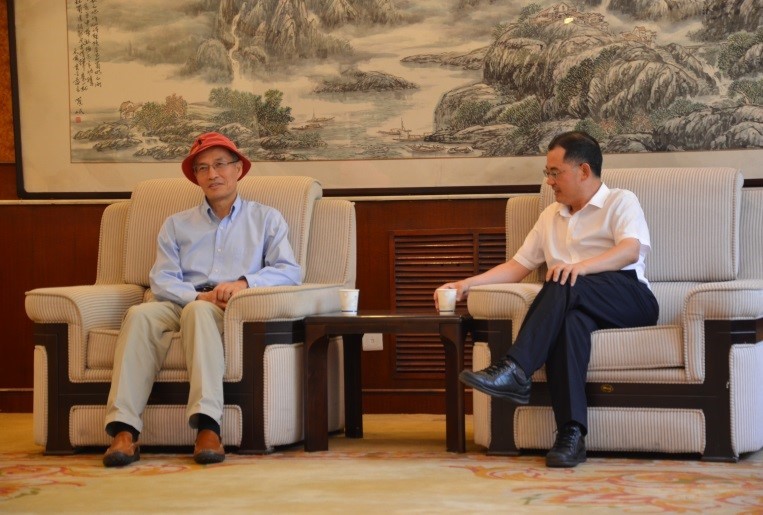
Base Director Zhao Xiangmo and Professor Wang Feiyue discussed and exchanged
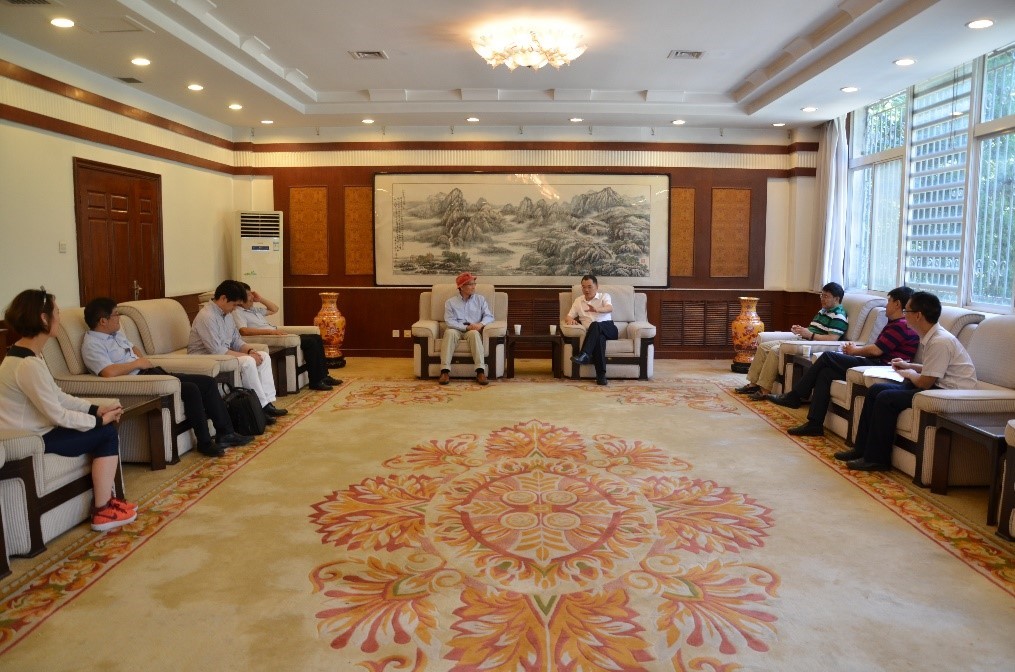
Meet the scene
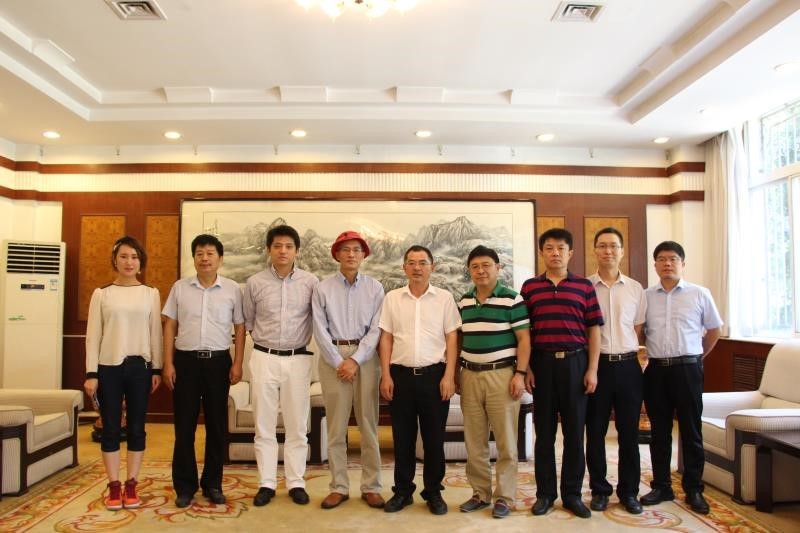
Group photo
After the meeting, Prof. Wang Feiyue gave an academic report entitled “AI for Automation of Intelligence: A Paradigm Shift from Newton's “Big Laws Small Data” to Merton's “Big Data Small Laws”. The report briefly reviewed the origins of cognitive science. And the goal, expounds the ways and ways of parallel cognition as a means of cognitive computing and hybrid intelligent structuring and procedures. Using ACP method and CPSS concept, by decomposing cognition into descriptive cognition, predictive cognition, Guided cognition attempts to provide a computable, testable, and verifiable infrastructure and platform framework for cognitive science, making “intelligence and knowing” a real-time technical requirement for intelligent cognition. Knowledge science will become the new impetus for the development and application of intelligent network communication system in the future. In the interactive interviews, the teachers and students present in the interview made in-depth exchanges on some of the views of Professor Wang Feiyue's report and discussed their respective research fields. Progress, the academic atmosphere is strong.
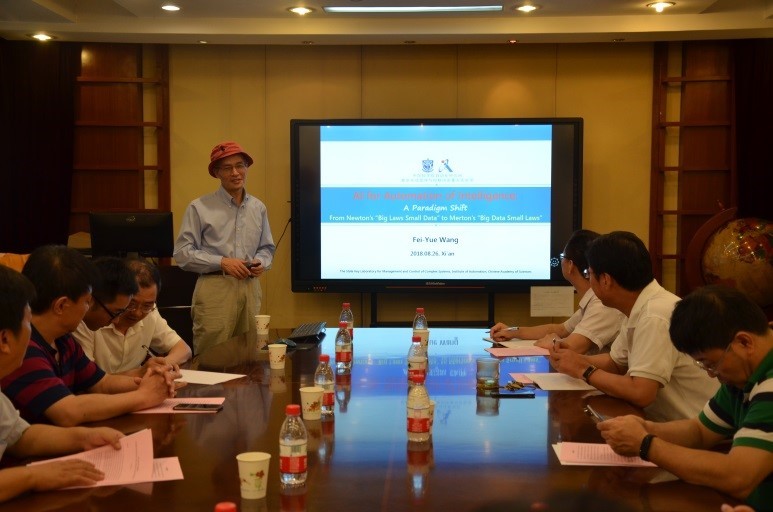
Professor Wang Feiyue gave an academic report
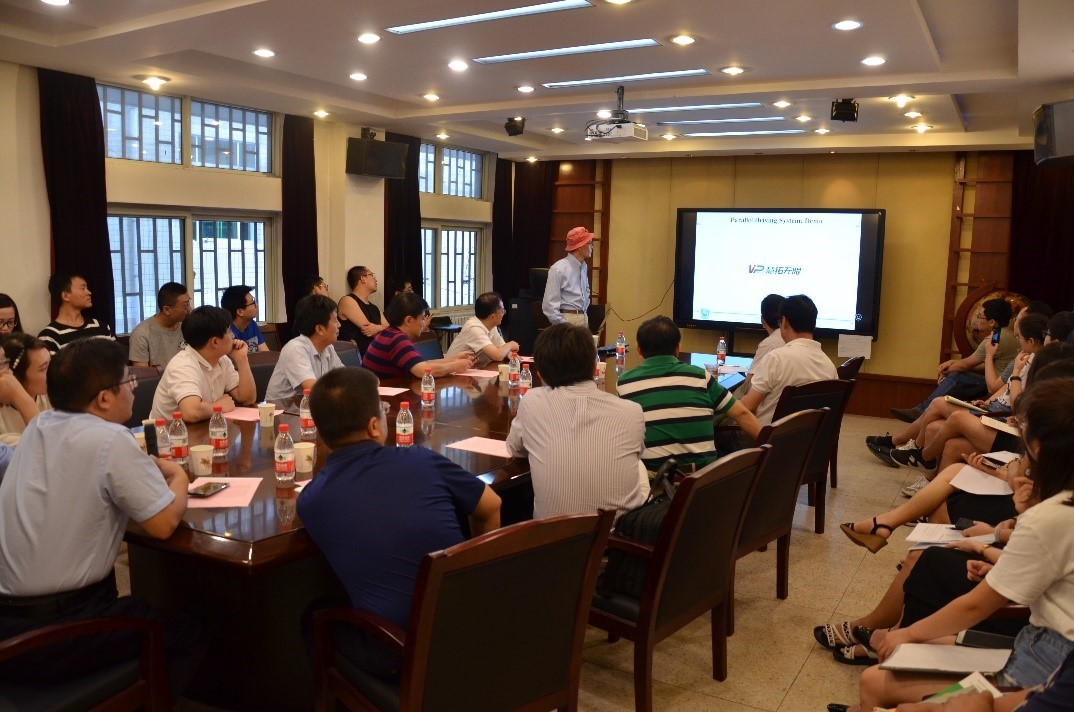
Professor Wang Feiyue communicates with my base teachers and students
Professor Wang Feiyue is one of the early pioneers in the fields of intelligent control, intelligent robots, driverless driving and intelligent transportation. Since the 1980s, he has studied and applied the research and application of intelligent control, robotics, artificial intelligence and complex systems by the pioneers of robotics and artificial intelligence, GN Saridis and RF McNaughton, and proposed and established the coordination structure of intelligent systems. Theory, linguistic dynamics theory, proxy control methods, ACP methods for complex systems, etc. "Advanced Studies of Flexible Robotic Manipulators: Modeling, Design, Control and Application", "Autonomous Rock Excavation: Intelligent Control Techniques and Experimentation", "Advanced Motion Control and Sensing for Intelligent Vehicles", "Advances in Computational Intelligence: Theory" More than ten academic monographs, such as "Applications" and "Social Computing", are the first academic works in related fields. Since the beginning of the 21st century, they have initiated and pioneered social computing, social manufacturing, parallel intelligence, parallel control, parallel management, New research areas such as parallel transportation and knowledge automation.
